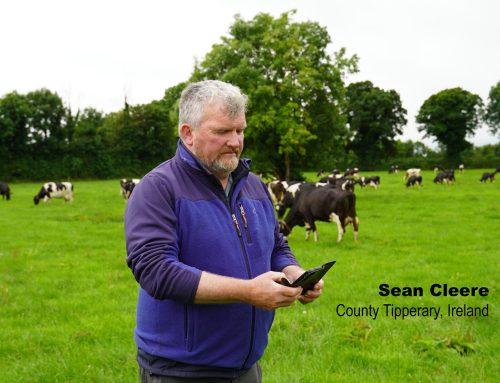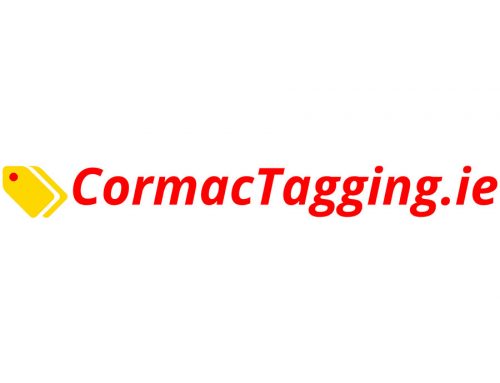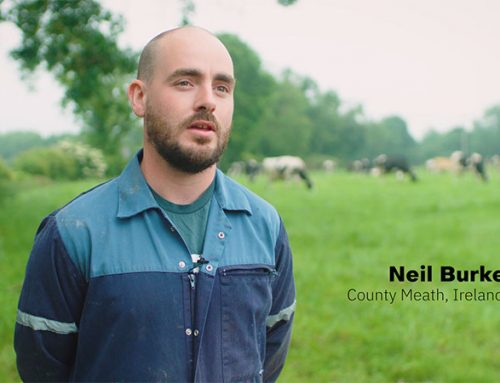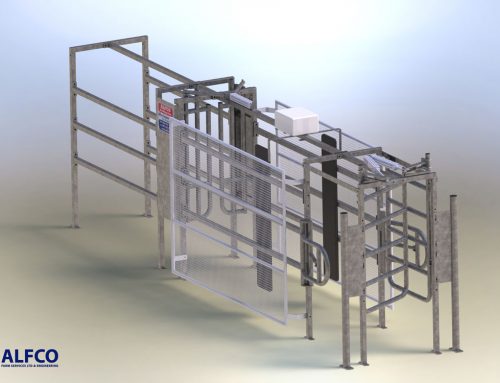With the winter season around the corner, it is all about planning to make the year ahead a smooth and profitable one. Accurate and easy to use cow sensor technology from Nedap has been proven successful for pasture-based systems and helps to achieve farm goals and create peace of mind.
The new breeding season is almost upon us and it is all about planning to get all the assets of the farm ready for June, such as drying-off a number of dairy cows and thinking about grass and feed management. Most farmers and their staff know exactly what to do for this June 1 change over. However, with limited staff members (especially in the face of Covid-19 restrictions) and larger herd sizes, the pressure on getting all cows inseminated and pregnant on time, while keeping an eye on grazing and animal health can be demanding. The use of cow sensor technology can ease the workload for seasonal calving systems as these systems watch over the cows 24/7 and accurately monitor heat, health and grazing time. Over the last years, the implementation of cow sensors (cow monitoring systems) in pasture-based dairy systems have been growing as dairy farmers clearly see the benefits of having a digital assistant on their side at all times. Cow monitoring technology facilitates a good start of the breeding season and assures that the year ahead will be an even more successful one.
Breakthroughs in sensor technology
Nedap from the Netherlands supports dairy farmers all over the world, including pasture based farms. The listed Dutch technology company has a heritage of being an innovative pioneer in several industries for over 90 years. It’s business unit Nedap Livestock Management has been active in livestock automation for over 40 years and over 25 years in heat detection systems for dairy farms. Technology is deeply rooted in the Dutch company, and its farming solutions are currently managing millions of cows in over 100 countries. “Work began in 1992, when we worked on our first activity monitoring system. At the time, the data we collected with these leg tags was sent with the cow identification number to the farmer, but only when the cow was close enough to the antenna in the barn. So we initially built these sensors for free-stall housing systems”, explains Bertino Verstege, managing director at Nedap Livestock Management. Since then, the technology of the sensor, the type of data collected and the way the data is processed has changed considerably. “An important breakthrough was the introduction and widespread availability of the 3D accelerometer technology (also used in smartphones). With this technology we were able to upgrade our sensor portfolio with neck sensors to track a wider range of cow behavioral patterns, based on the movement of the individual cow, and translate these patterns into insights on eating, rumination and health parameters for individual cows and herd level”, Verstege adds.

Application in pasture based systems
Another important development for Nedap, within its system that is now known as Nedap CowControl, has been the introduction of real-time data processing. Verstege: “This means our sensor technology is extra suitable for use in pasture-based systems. We collect the data for each cow 24/7 and farmers can summon the data at all times because of the real-time data processing. In practice, it means that when cows come back to the milking shed, the farmer responds to the sensor insights and can hence separate the cow for insemination or respond to a health insight. Chris Gerritsen, international business development manager at Nedap Livestock Management points out that all the investments the company did in the hardware, software, application and data processing resulted in a very accurate and user friendly solution to monitor cows in all possible farming systems, including pasture-based systems. Gerritsen: “The farmers in New Zealand and Australia are true champions in keeping the cost price of milk low. But we see that these farms start to become bigger and prepare for the future. This development coincides with increased investments in fully automated milking sheds, ranging from automatic cup removers to milking robots and other types of technology such as sensors”.
More interest for health monitoring
According to Nedap, pasture-grazing systems are ideal for monitoring cows with sensors. Gerritsen: “This is because these systems allow for natural behaviour and all the cows are kept under the same conditions with fewer distractions compared to tie- or free-stall barns. We are therefore very enthusiastic to show more farmers with pasture based systems that Nedap’s CowControl technology is an easy way to step up the game and become more efficient and profitable. And the added value lies in more accurate heat detection, but increasingly for health monitoring”. Verstege adds: “The demand for health monitoring is definitely increasing around the world, and also in Australia and New Zealand. In the past, farmers only used sensors on the cows that needed to get pregnant, which correspond to around one-third of the herd. This was also common practice in European systems in the past. But also the pre- and post calving period are extremely important to monitor body condition, feed intake and health of the cow. Luckily, over the last years, the mindset of farmers has changed, and we see that pretty much all farms choose to equip all the cows with a sensor. Not only to save labour to swap them all the time, but especially to monitor the health of all cows during all production phases with limited amounts of labour. Our so called SmartTag collar sensors help farmers to spot health issues a few days before they become critical, allowing for quicker intervention and treatment”.
Partnerships with leading brands
Since the introduction of the real-time, pasture-based friendly sensors, Nedap has been supporting farms across Australia and New Zealand. “We are active in these regions for years already, but many farmers may not recognize our solutions as coming from us. This is because we sell our technology through business partners”, explains Gerritsen. Nedap partners with a range of leading companies in milking equipment and genetics who integrate their identification and animal monitoring solutions in the products and services they offer to farmers. This way their solutions are powered by Nedap technology. “We associate ourselves with the well known and top brands in the industry that farmers already work with and trust. Farmers who choose to invest in automated milking sheds and/or milking robots for example can decide to upgrade with our heat and health monitoring solutions. We also partner with certain breeding companies, so farmers can invest in sensors to achieve the breeding goals together with their existing partner. It is like ‘Nedap Inside’, a way of saying that we all know from the PC computers equipped with powerful Intel processors and marked with a little ‘Intel Inside’ sticker”, Gerritsen adds.





